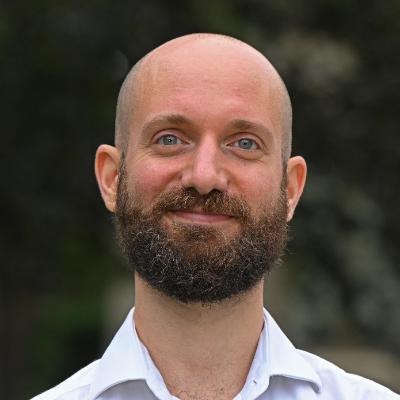Matteo Pace
Medieval Medicine, Science, and Philosophy
Dante Alighieri
Giovanni Boccaccio
Bodies and Embodiment
Matteo Pace is a medievalist specializing in Italian literary cultures and the history of medicine in the 13th and 14th centuries. His research focuses on how medieval vernacular poetry shaped the reception of ancient medical thought, particularly that of Aristotle and Galen, through poetic images conceptualizing the physical body. Pace examines how theories on body and soul informed medieval poetry’s articulation of literary tropes, especially those related to sense-perception, memory, physiology of bodily organs, natural determinism, and free will.
Pace’s first edited volume, Dante and the Sciences of the Human: Medicine, Physics, and the Soul (Cham: Palgrave Macmillan, 2024), is forthcoming in the series «Palgrave Studies in Medieval and Early Modern Medicine», edited by Jonathan Barry and Fabrizio Bigotti (Centre for the Study of Medicine and the Body in the Renaissance). This book presents a collection of essays exploring Dante Alighieri’s contributions to medical, scientific, and spiritual thought in medieval and early modern times. The essays address how Dante shaped an understanding of the human body and mind, his relationship with medical and scientific thought in his literary and philosophical works both within and outside the Divine Comedy, and his enduring legacy.
Pace’s current book project, tentatively titled Of Poets and Physicians: Literature and Medicine in Thirteenth-Century Italy, explores how the medical milieu of the 13th century influenced vernacular secular cultures. The book posits that the historical and scientific contexts of the Italian peninsula, from the Sicilian school of Frederick II and Manfred to the communal realities of Bologna and Florence, reflect the active reception of Aristotle, Galen, and their Arabic and Latin commentators in poetic circles. This work investigates the high degree of intellectual and scientific knowledge in 13th-century Italy and how medical sources connect an emerging vernacular culture to the complexity of urban networks.
At Connecticut College, Pace teaches courses at all levels in Italian language and cultures, as well as on medieval literatures in their intellectual contexts. His courses include ITL 250 Italian in the Workplace, ITL 260 Attualità in Italia: Conversazione, CC:ITL 230 Italian Middle Ages and Films (cross-listed with Film Studies), CC:ITL 242 Medieval Herstories (cross-listed with Gender, Sexuality, and Intersectionality Studies), ITL 330 Pandemic Narratives: Decameron (in the Public Health Pathway), and the First-Year Seminar Dante at 700+. With the Center for Teaching and Learning, he is been co-organizer of the Visiting Faculty Teaching Seminar series (2022-2023), and of the Class of ’57 Teaching Seminar for Incoming Faculty (2023-2024).
Matteo Pace is an Associate Fellow of the Centre for the Study of Medicine and the Body in the Renaissance (Fondazione Comel - Pisa, Italy), a member of the American Boccaccio Association, the Dante Society of America, the Medieval Academy of America, the Renaissance Society of America, and the American Association for Italian Studies.
Selected Publications
- (editor) Dante and the Sciences of the Human: Medicine, Physics, and the Soul (Cham: Palgrave Macmillan, 2024), forthcoming.
- “Giletta and the Other mediche: Gendering Science in Decameron 3.9.” Mediaevalia 26 (2025), forthcoming.
- “True Blood: Corporeality and Blood Piety in the Letters of Catherine of Siena.” Italica 99/1 (2022), pp. 21-39.
- “Come vertute in petra prezïosa: An Avicennian Thread in Guinizzelli’s Theory of Nobility.” In Literature and Medicine in the Middle Ages and the Renaissance, eds. Julie Singer, Colette Winn, Romanic Review 113/1 (2022), pp. 65-86.
- “Ut animalium pictura: Aristotle’s Heart in the Poetry of Giacomo da Lentini.” Traditio 75 (2020), pp. 225-51.
- “L’amore di Cimone. Tradizione medica e memoria cavalcantiana in Decameron V 1.” Studi sul Boccaccio 44 (2016), pp. 251-75.
